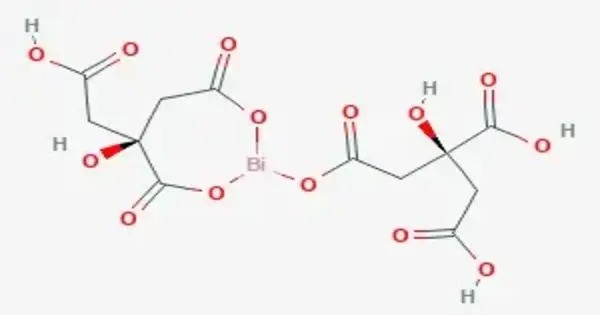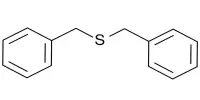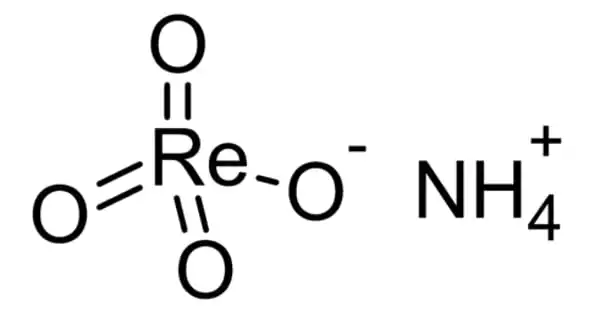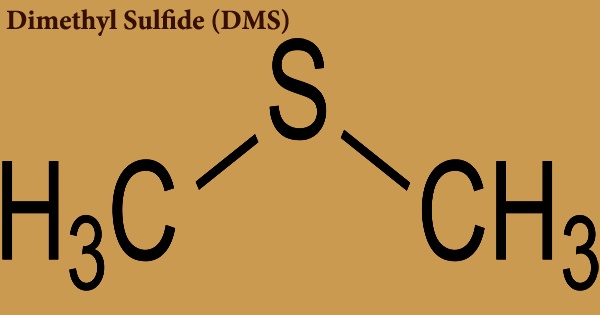Bismuth subcitrate potassium is a bismuth salt used in combination with antibiotics and a proton pump inhibitor for the treatment of Helicobacter pylori infections. It is a medication used primarily to treat gastrointestinal conditions, particularly for the treatment of gastric ulcers and Helicobacter pylori infections. It’s often found in combination with other drugs like antibiotics and proton pump inhibitors as part of a treatment regimen for H. pylori eradication and peptic ulcer disease.
A fixed-dose combination with the antibiotics metronidazole and tetracycline is sold under the trade name Pylera. It works by forming a protective coating over ulcers, which helps protect the stomach lining from further damage caused by stomach acid. It also has antimicrobial effects, which can help in the eradication of H. pylori bacteria, a common cause of peptic ulcers.
Chemical Properties
- Molecular Formula: The molecular formula of bismuth subcitrate potassium is typically expressed as BiK(C₆H₅O₇)₃, indicating the combination of bismuth (Bi), potassium (K), and citrate ions.
- Appearance: The compound appears as a pale yellow powder or crystalline solid.
- Solubility: It is poorly soluble in water but dissolves in acidic conditions, which makes it effective in treating digestive issues, especially in the acidic environment of the stomach.
- Reactivity: Bismuth subcitrate potassium is relatively stable under normal conditions but may react in the stomach with acids to form various bismuth salts.
Occurrences
- Natural Occurrence: Bismuth, the primary component of bismuth subcitrate potassium, occurs naturally in various minerals, such as bismuthinite (Bi₂S₃) and bismite (Bi₂O₃). However, bismuth subcitrate potassium itself does not naturally occur; it is synthesized for pharmaceutical use.
- Synthetic Formation: It is usually prepared through a process involving the reaction of bismuth compounds with citric acid and potassium salts. The resulting product is a complex formed to be used in medicine.
Applications
- Gastrointestinal Health: It is most commonly used in treating gastrointestinal disorders such as peptic ulcers, gastritis, and gastroesophageal reflux disease (GERD). It helps by coating the stomach lining, protecting it from stomach acids and aiding in the healing process.
- H. pylori Infection: PBS is often included in combination therapies for Helicobacter pylori eradication, as it can reduce the bacterial load and protect the stomach lining during antibiotic treatment.
- Antimicrobial Activity: It has mild antibacterial properties, contributing to its role in managing certain gastrointestinal infections.
- Pharmaceutical Formulations: It is commonly found in over-the-counter formulations like Pepto-Bismol and other similar antacids and gastrointestinal products.
Side effects
A known side effect of bismuth salts is harmless and reversible darkening of tongue and stool by formation of bismuth sulfite. Other side effects of bismuth containing combination therapies are often difficult to assign to a specific component.
















